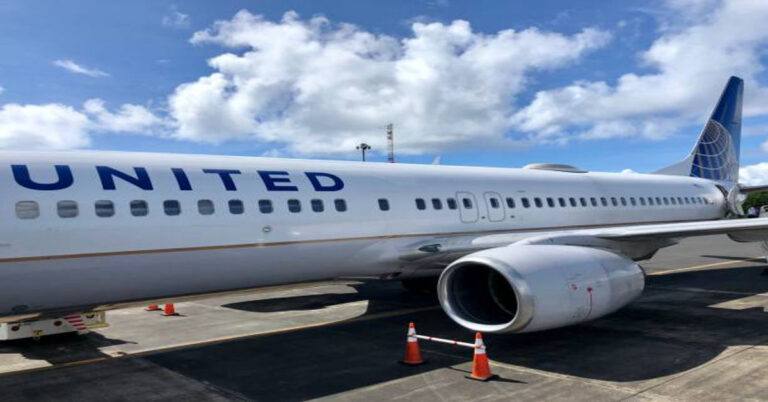
In the dynamic and often turbulent world of aviation, public statements from airline executives can echo far beyond their company walls. When the Frontier Airlines CEO Warning issues a warning—whether about fuel prices, consumer habits, staffing shortages, or broader industry challenges—it captures attention across the travel world. Such messages are not mere corporate communications; they represent vital indicators of how airlines are navigating a constantly evolving landscape marked by competition, economic pressure, and shifting passenger expectations.
Frontier Airlines, one of America’s leading ultra-low-cost carriers (ULCCs), has carved a distinctive space in the aviation market by offering affordable fares and efficient travel models. Yet, its operations—like those of all airlines—are closely tied to global and domestic economic trends, consumer confidence, fuel costs, regulatory shifts, and technological changes. When its CEO issues a warning, it’s often a signal that important transformations are underway—both within the company and the industry at large.
This article explores the Frontier Airlines CEO Warning as a reflection of broader aviation realities: what it means, why it matters, and what travelers, employees, and investors can learn from it. Through detailed insights, analysis, and industry context, we’ll uncover how such warnings reveal not just risk—but also opportunity for innovation and resilience in modern air travel.
Understanding Frontier Airlines and Its Business Model
Before interpreting any executive-level warning, it’s crucial to understand Frontier Airlines CEO Warning operational DNA. Frontier is a U.S.-based low-cost carrier known for its simple, budget-friendly flight model. The airline’s strategy revolves around providing the lowest possible base fares while offering passengers the flexibility to pay for extras such as seat selection, checked baggage, or onboard refreshments.
Key Features of Frontier Airlines’ Model:
| Category | Frontier Airlines Approach |
|---|---|
| Business Type | Ultra-Low-Cost Carrier (ULCC) |
| Primary Market | Domestic U.S. and short-haul international routes |
| Pricing Model | Base fare + add-on pricing for extras |
| Fleet Type | Primarily Airbus A320 family aircraft |
| Customer Base | Price-sensitive travelers, families, budget adventurers |
| Operational Goal | Efficiency, high seat utilization, reduced overhead |
Frontier’s model thrives on volume and cost control—maximizing aircraft usage, reducing turnaround times, and maintaining lean operations. It’s a strategy that works well during stable economic conditions, but it’s also highly sensitive to external pressures such as fuel costs, inflation, or changes in travel behavior.
This context helps explain why a warning from the company’s CEO might be particularly meaningful—it’s not only about immediate company performance but also about the structural sustainability of the low-cost airline model itself.
What the Frontier Airlines CEO Warning Represents
When an Frontier Airlines CEO Warning issues a warning, it typically encompasses three major dimensions:
- Operational Challenges – Issues like fuel price spikes, labor shortages, or delays in aircraft deliveries.
- Economic Pressures – Declines in consumer spending, inflation, or shifts in demand.
- Strategic Realignment – Signals that the airline must adapt to remain competitive or sustainable.
In the case of Frontier Airlines, a CEO warning often draws attention to how volatile external forces—such as rising fuel prices or market saturation—can impact profitability, even in a low-cost model. These warnings are also an opportunity to prepare stakeholders for possible adjustments in routes, pricing, or operations.
For travelers, it may suggest that fares could fluctuate or that certain service features may change. For employees, it can mean renewed focus on productivity or efficiency. For investors, it often signals potential turbulence—but also foresight and proactive management.
The Broader Economic and Industry Backdrop
The global airline industry operates at the crossroads of economics, geopolitics, and public behavior. A statement from Frontier Airlines CEO Warning cannot be separated from the broader context that shapes aviation performance. The post-pandemic years have brought both a surge in travel demand and unprecedented challenges for airlines.
Major Factors Affecting Airlines Like Frontier
| Factor | Description and Impact |
|---|---|
| Fuel Costs | The single largest expense for most airlines. Even small increases can affect ticket pricing. |
| Labor Shortages | Shortages of pilots, flight attendants, and ground staff strain operations. |
| Inflation | Higher costs for maintenance, food, and airport fees pressure profit margins. |
| Consumer Trends | Travelers increasingly value flexibility and comfort, even at higher prices. |
| Regulations | Environmental and safety standards add operational complexity. |
| Competition | Both legacy carriers and new budget airlines increase market pressure. |
These overlapping pressures often prompt CEOs to issue public Frontier Airlines CEO Warning—not as alarmist gestures, but as strategic communication tools to inform markets and prepare consumers for potential change.
Frontier Airlines CEO Warning: Reading Between the Lines
When a Frontier Airlines CEO issues a cautionary statement, it usually reflects internal data and market forecasting. For instance, the CEO might warn about overcapacity in the domestic market, indicating too many low-cost seats being sold across competing airlines. Alternatively, the warning could concern rising operational costs or consumer behavior shifts post-pandemic.
Common Themes Behind CEO Warnings:
- Profit Margin Compression: Despite strong ticket sales, rising costs can erode profits.
- Market Saturation: Too many low-cost flights chasing limited demand leads to price wars.
- Operational Risks: Weather disruptions, air traffic control issues, or staffing shortages.
- Sustainability Challenges: Balancing environmental goals with affordability.
A Frontier Airlines CEO Warning is not necessarily negative—it’s often a strategic forecast, meant to realign investor expectations and guide internal adaptation.
Frontier Airlines’ Strategic Adaptations
One of the defining traits of successful low-cost airlines is adaptability. Frontier Airlines has a long history of adjusting its business model to meet changing realities. The Frontier Airlines CEO Warning often precede or accompany such adjustments—whether that means fleet modernization, revised fare structures, or updated customer engagement strategies.
Recent Focus Areas:
- Fleet Modernization: Investing in more fuel-efficient Airbus aircraft to cut operating costs.
- Dynamic Pricing Models: Using data-driven algorithms to adjust fares in real time.
- Sustainability Initiatives: Exploring carbon offset programs and reduced fuel emissions.
- Customer Loyalty Programs: Encouraging repeat business through rewards and bundle pricing.
These initiatives show that warnings often lead to transformation, not retreat. The purpose is to stay ahead of challenges rather than react after damage is done.
The Role of Leadership in Aviation Communication
Frontier Airlines CEO Warning play a unique role in shaping both public perception and internal confidence. The tone and timing of a CEO’s warning can influence stock prices, media narratives, and even competitor behavior. Frontier’s leadership, like that of many airlines, must strike a balance between transparency and optimism—warning about potential risks while reaffirming long-term stability.
An effective CEO warning serves as both a cautionary and motivational tool. It signals that leadership is aware of challenges and actively managing them. This transparency can strengthen trust among stakeholders—even during uncertainty.
Impact on Passengers
Passengers often wonder what a Frontier Airlines CEO Warning warning means for their travel plans. While such statements rarely indicate immediate disruptions, they can hint at future changes in pricing, scheduling, or service offerings.
For example, if the Frontier Airlines CEO Warning of rising operational costs, passengers might see modest fare increases or fewer promotions. If labor shortages are mentioned, there could be schedule adjustments or limited customer service availability.
However, in many cases, these warnings prompt improvements—such as greater efficiency, clearer communication, or enhanced digital booking tools—to maintain passenger satisfaction even during challenging periods.
Possible Passenger Impacts of a CEO Warning
| Warning Topic | Potential Passenger Impact |
|---|---|
| Rising fuel costs | Slight fare increases |
| Labor shortages | Occasional schedule changes |
| Overcapacity | More competitive pricing in short term |
| Sustainability focus | Introduction of eco-fees or carbon offsets |
| Economic downturn | Route consolidation or reduced frequency |
Investor and Market Reactions
Financial markets often respond quickly to public statements from airline CEOs. A warning may initially cause stock prices to dip as investors assess potential risks. However, if the message is framed as a strategic awareness rather than alarm, markets may interpret it positively—seeing it as a sign of responsible leadership.
Frontier’s position as a publicly traded Frontier Airlines CEO Warning means such warnings are also tools of fiscal communication. They help align investor expectations with operational realities. Analysts often view CEO warnings as proactive management rather than distress signals—especially when paired with clear corrective strategies.
The Frontier Airlines Approach to Sustainability and Responsibility
In recent years, aviation sustainability has moved from optional to essential. As one of the most fuel-efficient airlines in the U.S., Frontier has built part of its identity around eco-conscious operations. The CEO’s warnings sometimes highlight the tension between sustainability goals and cost containment, urging balance between environmental responsibility and affordability.
Frontier’s Green Initiatives:
| Initiative | Purpose |
|---|---|
| Modern Fleet | Newer Airbus A320neo aircraft reduce emissions and fuel use |
| Weight Reduction | Lighter seats, carts, and materials reduce overall fuel burn |
| Efficient Flight Paths | Optimized routes for minimal air time and fuel usage |
| Digital Boarding and E-Tickets | Paperless operations to cut waste |
| Eco-Friendly Branding | Promotion of wildlife and nature themes on aircraft tails |
The CEO’s emphasis on sustainability demonstrates that Frontier Airlines CEO Warning are not just financial—they’re ethical and environmental, reflecting a long-term vision for responsible growth.
Challenges Unique to Frontier’s Business Model
The ultra-low-cost carrier model offers impressive affordability but comes with unique constraints. Profitability depends heavily on volume, cost efficiency, and consumer behavior. Any disruption—economic, logistical, or environmental—can quickly ripple through the business structure.
Key Vulnerabilities:
- Thin Profit Margins: Small increases in cost can drastically affect profitability.
- Customer Perception: Some travelers misunderstand the à la carte pricing structure.
- Route Dependence: Heavy reliance on specific high-demand routes.
- Fuel Volatility: A direct threat to low-cost pricing strategies.
These vulnerabilities often form the basis of CEO warnings—reminders that maintaining low fares requires careful balance across all operational layers.
The Future of Low-Cost Air Travel
Frontier Airlines’ warnings often point toward the future of the aviation industry—a sector that is rapidly evolving through technology, automation, and changing customer expectations. Low-cost airlines will need to find innovative ways to remain affordable while integrating sustainability, comfort, and reliability.
The next decade of air travel will likely feature:
- Greater Digitalization: More automation in booking, boarding, and customer service.
- Flexible Fare Systems: Personalized pricing based on data and loyalty.
- Sustainable Fuel Innovations: Shift toward biofuels or hybrid energy solutions.
- Regional Expansion: New markets in underserved domestic and international routes.
- Hybrid Models: Combining low-cost efficiency with selected premium offerings.
Frontier’s leadership will play a critical role in guiding these transitions—and CEO warnings may serve as early indicators of how quickly such changes are unfolding.
Lessons for Travelers and Industry Observers
The Frontier Airlines CEO warning is more than a company announcement—it’s a learning opportunity for anyone interested in aviation, economics, or sustainability. It underscores the fragility and adaptability of the air travel ecosystem and shows how leadership communication reflects broader trends in global business.
Key Takeaways:
- Transparency is Vital: Honest communication builds trust even during uncertainty.
- Adaptability Defines Success: Airlines that evolve survive downturns.
- Sustainability is Non-Negotiable: Environmental responsibility is now central to airline strategy.
- Consumer Awareness Matters: Travelers who understand airline economics can make smarter booking choices.
- Leadership Tone Shapes Perception: A measured, thoughtful warning can inspire confidence instead of fear.
Conclusion
The Frontier Airlines CEO warning is not merely a headline—it is a reflection of an evolving aviation landscape where adaptability, efficiency, and foresight determine survival. Frontier’s position as a cost-conscious, sustainability-minded airline means its leadership must constantly balance affordability with responsibility, growth with stability, and innovation with tradition.
Such warnings are vital checkpoints in that balancing act. They remind stakeholders—from passengers to policymakers—that the aviation industry is a living, breathing system affected by economics, technology, and human behavior. Frontier’s CEO, in issuing such messages, serves as both a steward of the company and a voice within the broader conversation about the future of accessible, sustainable flight.
Ultimately, these warnings are less about fear and more about foresight—guiding the airline and its customers through turbulence with honesty, data, and vision. And for passengers who simply search for affordable, reliable air travel, they serve as a reminder that behind every ticket and takeoff lies an intricate dance of economics, environment, and leadership.
FAQs
1. Why did the Frontier Airlines CEO issue a warning?
Such warnings typically reflect rising costs, market saturation, or operational challenges. They’re designed to inform investors and prepare consumers for upcoming adjustments in pricing or service.
2. Does a CEO warning mean Frontier Airlines is in trouble?
Not necessarily. It’s often a proactive measure, signaling that leadership is aware of challenges and taking steps to manage them responsibly.
3. How do CEO warnings affect ticket prices?
If operational costs rise—such as fuel or labor—ticket prices may increase slightly. However, low-cost carriers like Frontier aim to keep fares affordable.
4. Are CEO warnings common in the airline industry?
Yes. Airlines operate in volatile conditions, and CEOs often issue public guidance to manage expectations and maintain transparency.
5. What can passengers do in response to such warnings?
Travelers should plan ahead, monitor fare trends, and remain flexible with booking times and routes to maximize savings and convenience.






